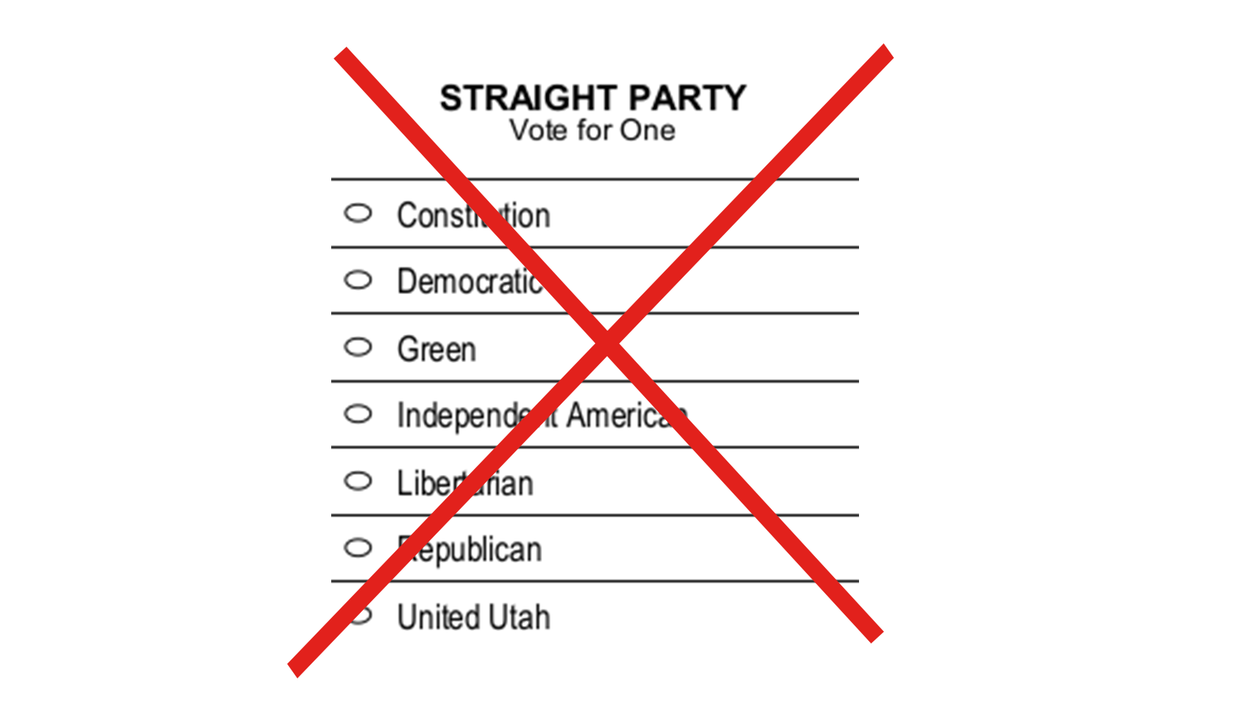Utah is the latest state to end straight-ticket voting, which means providing a single spot on the ballot for supporting one political party's entire slate of candidates.
That form of voting was once a big feature of American elections but has steadily lost support in recent years. The argument mainly espoused by Republicans, that participatory democracy is improved by requiring separate choices in each contest, has triumphed over the argument mainly advanced by Democrats, that speed and convenience at the polls will assure strong turnout especially in urban precincts.
Utah is the seventh state to do away with the practice in the past decade. With its switch, signed into law by Republcian Gov. Gary Herbert this week, just five states are expected to have the single-vote option this fall: Alabama, Indiana, Kentucky, Oklahoma, South Carolina and Michigan.
Michiganders went against the grain and revived the straight-party option in a 2018 referendum, three years after the Legislature eliminated it. In the intervening time, a federal court ruled that ending the practice would lead to an unconstitutional suppression of the African-American vote.
A similar claim is now being pressed by Democrats in Texas, who have filed a lawsuit alleging minority voters will be disproportionately hurt by massive delays at the polls this fall if the new ban on straight-party voting in Texas is permitted to take effect.
Although Utah is far more reliably Republican than Texas — which abolished the practice on essentially straight party-line legislative votes — its decision to end blanket partisan voting ended up passing with broad bipartisan support on the final night of the Legislature's session, a 25-1 vote in the Senate quickly followed by a 44-27 roll call in the House.
One reason appeared to be that the effort had been pushed for eight years by a veteran Democratic legislator, Patrice Arent, who is retiring this year and made it a major cause for her final term.
She argued that, at least in her state, the benefits to her party in Salt Lake City were about the same as the benefits to the GOP in the rest of the state.
But, she often said, "It doesn't matter who it helps or who it hurts. It's what we ought to be doing in our democracy."
President Trump could count on the state's six electoral votes with or without the switch. Four congressional contests and many state legislative races will also be on the ballot. And in addition to those partisan contests, voters will also be asked to choose in nonpartisan races for judgeships and many local offices — in which the vote count has customarily slipped because many casting straight-ticket ballots don't realize they did not cover the down ballot contests.




















Trump & Hegseth gave Mark Kelly a huge 2028 gift